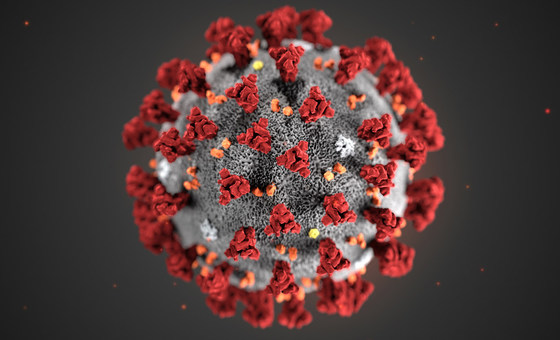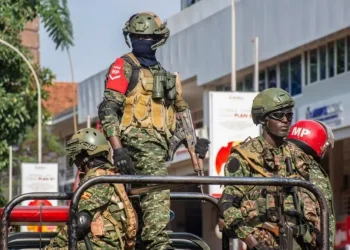A sub-variant of the Omicron strain of coronavirus has been classified as a “variant of interest” by the World Health Organization, because of “its rapidly increasing spread”.
JN.1 has been found in many countries around the world, including India, China, UK and the United States.
The risk to the public is currently low and current vaccines continue to offer protection, the WHO says.
But it warns Covid and other infections could rise this winter.
Respiratory viruses such as flu, respiratory syncytial virus (RSV) and childhood pneumonia are also on the rise in the northern hemisphere.
The virus which causes Covid is constantly changing over time and sometimes this leads to new variants developing.
Omicron has been the globally dominant variant for some time.
The World Health Organization (WHO) is currently tracking a number of variants of interest linked to Omicron – including JN.1 – although none of them are deemed to be concerning.
But JN.1 is spreading quickly in many corners of the world.
It is currently the fastest-growing variant in the United States, according to the US Centres for Disease Control and Prevention, accounting for 15-29% of infections.
The UK Health Security Agency says JN.1 currently makes up around 7% of positive Covid tests analysed in a lab. It said it would continue to monitor all available data on this and other variants.
Winter Surge
JN.1 is spreading fast in all regions, probably because it has an additional mutation in the spike protein compared to the BA.2.86 variant from which it’s descended.
“It is anticipated that this variant may cause an increase in Sars-Cov-2 [coronavirus] cases amid a surge of infections of other viral and bacterial infections, especially in countries entering the winter season,” the WHO’s risk assessment says.
There is still limited evidence on how capable JN.1 is of getting round the immunity offered by vaccines, the WHO says.
There are no reports of people becoming more ill with this variant than previous ones.
But more studies are needed to work out the health impact, the WHO says, as the number of countries reporting data on people admitted to hospital with Covid has dramatically reduced.
To prevent infections and severe disease, the WHO advises:
- wear a mask in crowded, enclosed areas
- cover up coughs and sneezes
- clean your hands regularly
- stay up to date with Covid and flu vaccinations, especially if vulnerable
- stay home if ill
- get tested if you have symptoms
BBC News
















